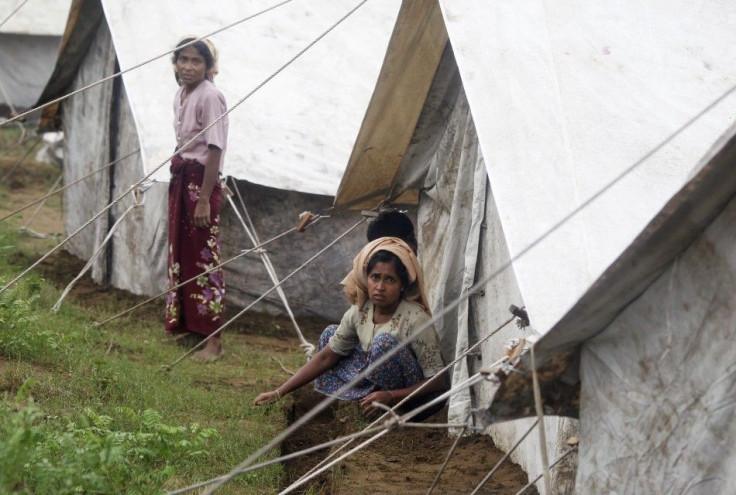Aid Groups In Bangladesh Asked To Stop Helping Rohingyas Flee Myanmar

Three international aid agencies working in Bangladesh have been reportedly asked to halt their activities on the ground that they were facilitating the Rohingya refugees from strife-torn Myanmar to travel across the border into the country.
As part of its efforts to discourage illegal migration, the Bangladeshi government Thursday asked Doctors Without Borders, Action Against Hunger and Muslim Aid to stop helping the fleeing Rohingya Muslims.
"Any NGO wishing to work in the bordering areas requires approval of the NGO Affairs Bureau. These three NGOs have not taken such approval," Joynul Bari, deputy commissioner of Cox's Bazar, a Bangladeshi coastal town, was quoted as saying by the regional media.
The Bangladeshi government, which drew criticism from various rights groups for turning down shelter to Myanmar's refugees, maintained that Myanmar should address the longstanding communal tensions.
"Labeled as foreign intruders in Myanmar and rejected by Bangladesh, the Rohingya people are essentially stateless," a Los Angeles Times report observed.
According to Bangladesh government's data, there are 30,000 Rohingyas in two camps in Cox's Bazar. Apart from that, an estimated 500,000 unregistered Rohingyas live in Cox's Bazar and neighboring districts, the Daily Star reported.
The Myanmar government declared a state of emergency in Rakhine State, along the Bangladesh border, June 10 following an outbreak of communal sectarian violence in the previous week. Remote Rakhine is an area known for incidences of sectarian violence between the Buddhist residents and the Muslim minority.
Communal tensions have continued to flare in western Myanmar several weeks into the declaration of the state of emergency even as targeted attacks and human rights violations by the security forces against the minority community of the Rohingya and other Muslims have increased, according to human rights watchdogs.
Myanmar's Border Security Force (Nasaka), the army and the police had been conducting massive sweeps in the area, leading to the arrest of hundreds of people, some of whom were subjected to ill-treatment, said Amnesty International in a report published July 20.
"In six weeks (into the state of emergency), Myanmar has not only added to a long litany of human rights violations against the Rohingya, but has also done an about-turn on the situation of political imprisonment," Benjamin Zawacki, Amnesty International's Myanmar Researcher said.
The violence subsided two weeks after the declaration of emergency, during which at least 78 people were killed and thousands of homes belonging to both communities were torched, according to a report by Myanmar's National Human Rights Commission published July 11. Unofficial estimates of casualties exceeded 100, Amnesty said.
The human rights watchdog said that abuses against the Rohingya and other Rakhine Muslims included physical violence, rape, destruction of property and unlawful killings carried out by the Rakhine Buddhists and the security forces.
The Buddhists comprise 89 percent of Myanmar's population while the Muslims represent four percent. The Muslim minority consists of the Rohingya people and the descendents of Muslim immigrants from neighboring India, Bangladesh, China and early Arab and Persian settlers.
According to an Amnesty International report of 2004, the Rohingya have been subjected to various human rights violations under the junta rule since 1978.
© Copyright IBTimes 2024. All rights reserved.






















